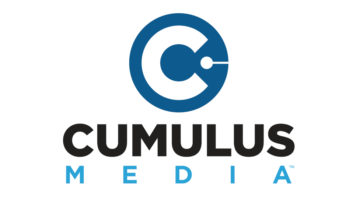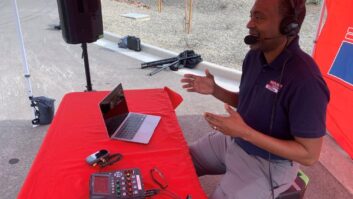Cumulus Media reported net revenues for the first quarter of the year decreased $3.1 million, or 1.3%, to $232.9 million, compared to $236 million for the quarter a year ago. The company attributed the drop to lower political advertising revenues and general lower advertising spending in some of its markets.
Cumulus Chair/CEO Lew Dickey told Wall Street analysts today some stations in larger markets were under-performing and sales changes the company has made are beginning to pay off. He cited big news/talk stations like WLS(AM/FM), Chicago, WABC(AM), New York, WMAL(AM/FM) Washington and WJR(AM), Detroit, as growing. The company is making “excellent progress” on some 10 stations it originally targeted as needing revenue improvement, according to Dickey. The broadcaster is most focused on turning around KGO(AM), San Francisco and KLOS(FM), Los Angeles, he said.
Overall, the radio industry appears to be slowly improving, Dickey said, with the economy on a slow climb out of a recession and initiatives Cumulus has been working on starting to bear fruit.
The integration and turnaround of the Citadel assets “is now largely behind us,” he said, adding that the broadcaster is investing in several content initiatives to drive growth beginning in the back half of this year and accelerating into 2014. Dickey expects investments in those initiatives — CBS Sports Radio, traffic reporting services, Nash country music format and SweetJack — to contribute to the company’s cash flow beginning in Q4 of this year.
Direct operating expenses for first quarter increased $10.6 million, or 6.9%, to $164.2 million. That compares to $153.6 million for Q1 2012. The company chalked that up to a $1 million increase in sales salaries, a $1.6 million increase in Arbitron fees and a $4.9 million increase in expenses at Cumulus’ network division as the result of the broadcaster investments in content initiatives mentioned above.
Having Cumulus-owned station streams on Clear Channel’s iHeartRadio platform now means Cumulus is currently the third-largest streaming platform in the country, according to the executive.
Explaining the company’s mobile strategy, Dickey said mobile complements the broadcaster’s core business. “If somebody is in the car and hears the ad, they can dial [star and a number] and get a movie pass,” for example. “It knows exactly where you are.”
Addressability “is appealing to advertisers. We’re working to understand it. It’s attractive to advertisers to reach an audience on the go,” Dickey said. “With everyone carrying smartphones now,” mobile “is a compelling proposition for advertisers. That’s why we’re focused on it.”
Asked how or whether the fact that Pandora is hiring local radio salespeople as it beefs up its own sales force, Dickey said: “We’ve had some people hired away. Two out of three have come knocking on our door, asking to come back. That’s been our experience.”










